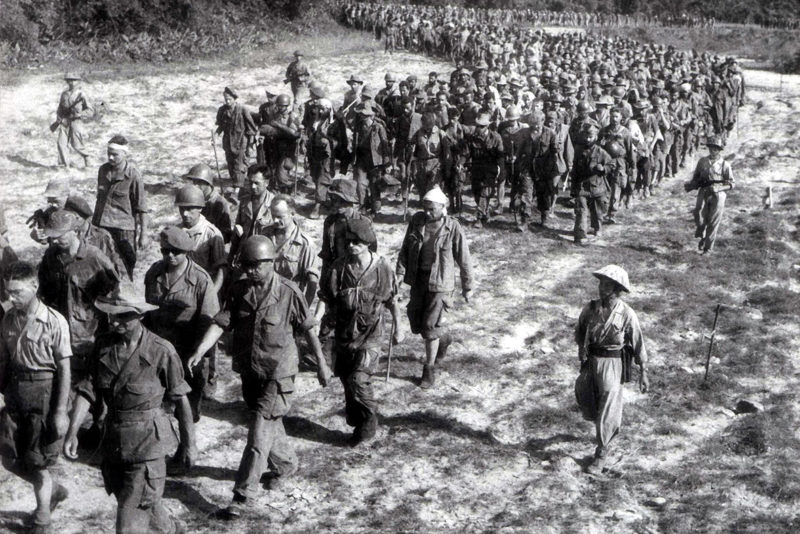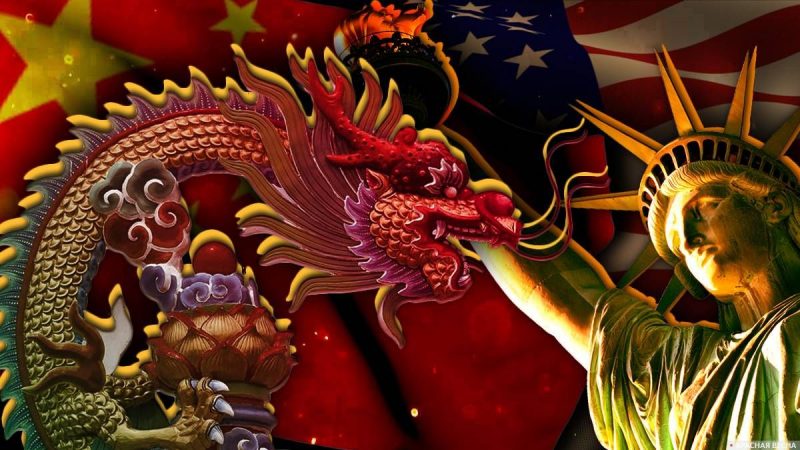06.05.2024, Hanoi.
Comrades started coming in dreams when the French-Indochina War ended, Luong Van Huong, a 96-year-old veteran of the Battle of Dien Bien Phu, told the Vietnam News Agency on May 5.
“During the battle, I dreamed of peace, and when it came true, my dreams were all about my comrades every night,” Luong Van Huong told the news agency.
Luong Van Huong is one of the few survivors of the strike force that fought in the historic 56-day battle that brought Vietnam a world-shaking victory at Dien Bien Phu, beginning the collapse of French colonial rule in Indochina and Vietnam’s emergence as an independent nation.
To this day, Dien Bien Phu remains a bittersweet memory for many veterans, such as Luong Van Huong, who wear the victory as a badge of honor but lament the high death toll.
He revealed that the great victory came at a great cost.
Luong Van Huong said that after four of his 12 comrades were killed and two were wounded in the first attack, other fighters replaced them. And some of them died in the next attacks, and their bodies were completely destroyed by bombs.
Some platoons and squads were completely destroyed in one day. The 1954 battle was fought in a rugged, remote valley. It claimed the lives of thousands of soldiers on both sides in less than two months, from March 13 to May 7, as Vietnamese fighters pushed back the French troops, equipped with more powerful weapons, and shelled them with heavy artillery.
It cost Vietnam 4,020 dead, 10,130 wounded and 792 missing. Some 3,976 fallen soldiers rest in three cemeteries in the Doklap (Independence), Himlam, and A1 hills area where they fought.
For Luong Van Huong, the battle was even more fierce because he had previously received news that his young son had been killed by the French.
Driven by patriotism and a desire to see Vietnam’s independence from colonizing France, Luong Van Huong and Nguyen Duc Noi, like tens of thousands of young men of their generation, went to the front. They recall that they were energized by the nation’s call, “All for the front, all for victory.”
“I was the youngest among the boys in my hometown who volunteered to go to battle, with the support of my mother,” Nguyen Duc Noi said. According to him, he did not think about much at the time and just wanted to follow his compatriots.
Luong Van Huong was arrested during a raid by French troops on his village in 1950 and imprisoned for a month and a half because he was a committee member of the National Salvation Youth Union.
Veterans recall that to reach Dien Bien Phu in the northwest of the country, they trekked through forests from the central province of Thanh Hoa for two weeks.
“We slept in the jungle during the day and walked for about four hours at night, with weapons and a 10-kilogram backpack on our shoulders. Local people gave us rice, vegetables and other food to survive,” Luong Van Huong recalled.
For Nguyen Duc Noi, the most dangerous assignment was individual reconnaissance, sometimes carried out by a small group of three people, as he had never had military training before.
Nguyen Duc Noi, Luong Van Huong and all their comrades dug trenches and tunnels day and night in preparation for the historic battle of Dien Bien Phu, which at the time was the strongest fortified camp in Indochina according to the Navarre plan developed by French colonizers and US interventionists in the fall and winter of 1953.
Peter MacDonald in his book The Victor in Vietnam: Giap first published in 1993 noted that, “Perhaps, though, the most astonishing example of their digging ability was that when they took Dominique they did not establish positions on top of the hill, they dug right through it from behind; outwardly, it looked as it always had, pock-marked and rugged; inside it was an ant’s nest of weapon pits.”
Both veterans said they did not know how strong the French troops were or what President Ho Chi Minh and Vo Nguyen Giap’s tactics were at Dien Bien Phu, but they always trusted and followed President Ho Chi Minh’s leadership and General Vo Nguyen Giap’s command.
Referring to the great sacrifice of soldiers at Dien Bien Phu, the veterans expressed their hope that today’s youth will carry on the tradition of patriotism, strengthen their will and enrich their knowledge to contribute to national development.
The newspaper quoted Professor Carl Thayer from the University of New South Wales as saying, “Vietnam’s schools, universities and mass organizations should conduct educational programmes and conduct field trips to the Dien Bien Phu battlefield to remind the youths of today that Vietnam’s self-reliance and independence due to the sacrifice of those who fell to defeat the French.”
Source: Rossa Primavera News Agency




